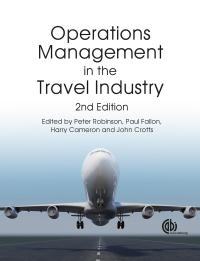What else could train companies do to encourage passengers to spend extra money while on board? Longer
Question:
What else could train companies do to encourage passengers to spend extra money while on board? Longer distance train services offer two distinct levels of service: first class and standard class.
Standard class passengers purchase a ticket that offers seating in a row of four with an aisle down the middle. Some seats have tables, others have fold-up ‘picnic’ tables mounted on the back of the seat in front. Some companies offer plugs for laptops and mobile phones and some services also have radio broadcast facilities. There is a shop on board where passengers can purchase refreshments, magazines and other items.
In contrast, first class passengers are offered greater leg room in seating rows of three
(two on one side, one on the other side of the aisle) and all seats have tables. In addition, there is often a waiter/waitress service and passengers are offered complimentary food.
First class tickets are a higher price so these additional benefits are considered to be the added value.
On quieter services, train operators will offer cheaper tickets for all classes and cheap first class upgrades to standard class passengers. This is a yield management technique designed to increase income on services that may be running at a loss, and to reduce any loss of stock that is kept for first class passengers, such as food. Additionally, some companies run travel clubs which offer free train travel on quiet services, designed to encourage passengers to spend money once on board and to develop customer loyalty.
These schemes generally require passengers to purchase a specified number of tickets over a given period of time, which encourages use of the railway during busier times when ticket prices are much higher.
Rail operators are regularly criticized for higher ticket prices at peak times, but this is often the only way for operators to cover the costs of quieter services during the daytime and at weekends. While this can be a disincentive for people to commute by train, regular customers are offered season passes and discounts which reward this greater commitment with lower prices.
Various sources
Step by Step Answer:






